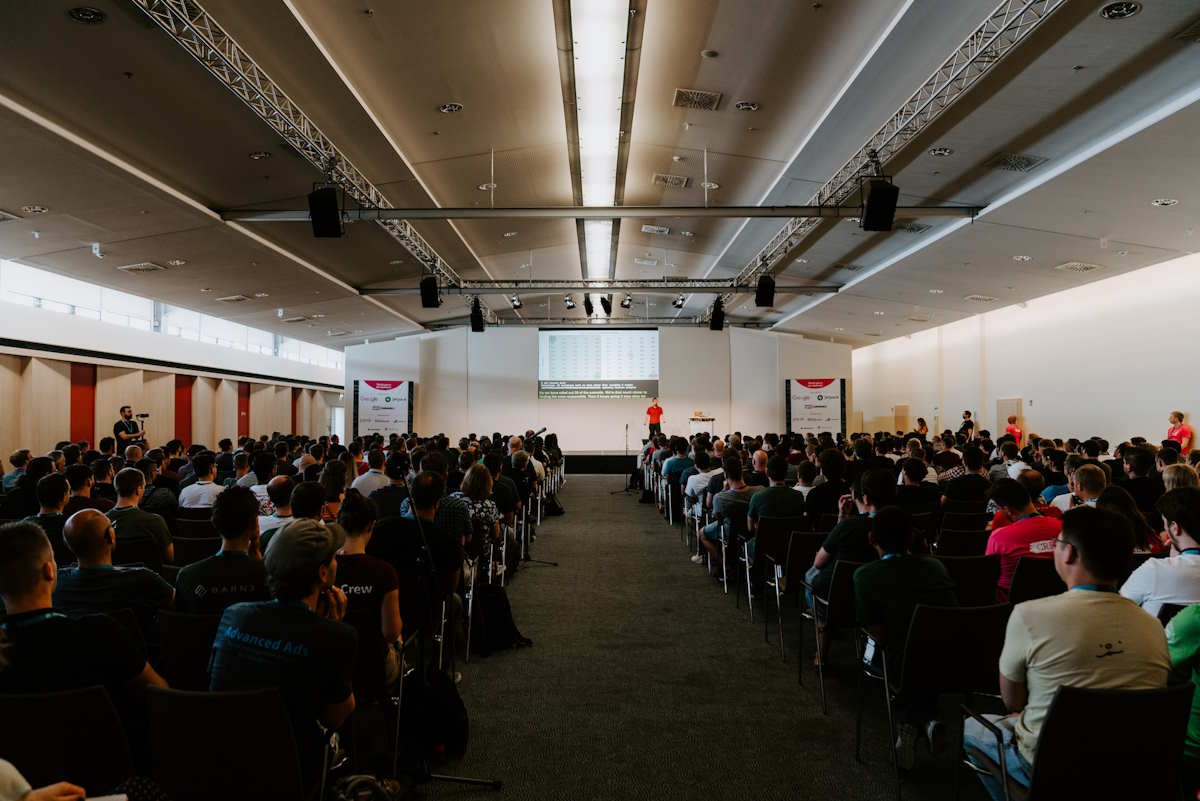The significance of crypto conferences has grown exponentially. What were once small specialized gatherings have evolved into crucial platforms, drawing together industry leaders, enthusiasts, and visionaries.
In the face of the continuous expansion of the crypto community, the value of well-executed conferences cannot be emphasized enough. Whether you’re a blockchain entrepreneur, a tech aficionado, or someone captivated by the complexities of decentralized finance, organizing a crypto conference holds the potential to revolutionize engagement in this ever-evolving sector. In this article, we’ll discuss how to organize such an event.

What Is a Crypto Conference?
A crypto conference stands as a cornerstone gathering where industry professionals, enthusiasts, and curious minds convene to exchange knowledge, showcase innovations, and build the collaborative bridges that fuel the crypto ecosystem. To make the most of your involvement in the crypto space, keeping an eye on the crypto conferences scheduled for 2024 is crucial.
Before you move to planning and organizing, note the key elements of a crypto conference:
- Knowledge Sharing: This is a unique opportunity to delve into the intricacies of blockchain technology, decentralized finance, and emerging trends. Through keynote speeches, panel discussions, and workshops, participants gain valuable insights that can shape their understanding of the rapidly evolving crypto landscape.
- Networking Opportunities: Connecting with like-minded individuals, potential collaborators, and industry leaders can open doors to partnerships, investment opportunities, and a deeper understanding of the diverse facets of the crypto community.
- Project Showcases: Many conferences provide a platform for blockchain projects and startups to showcase their innovations.
- Regulatory Updates: Crypto conferences often feature discussions led by legal experts, shedding light on the latest regulatory developments and helping attendees navigate the complex legal landscape surrounding digital assets.
Types of Crypto Conferences
Whether you’re a developer, investor, or blockchain enthusiast, choosing the right type of conference to organize is crucial for maximizing your experience. Here is a comparison of the key categories, their target audiences, and focuses:
| Conference Type | Target Audience | Focus |
| Blockchain Developer Conferences | Developers, programmers, and tech enthusiasts | In-depth technical discussions, coding workshops, and hands-on sessions to explore the latest advancements in blockchain development |
| Blockchain Investment Conferences | Investors, venture capitalists, and startups | Providing a platform for investment opportunities, pitch sessions, and networking for those looking to fund or secure funding for blockchain projects |
| Decentralized Finance (DeFi) Summits | Finance professionals, DeFi enthusiasts, and investors | Exploring the decentralized finance ecosystem, discussing the latest DeFi protocols, and addressing the challenges and opportunities within this rapidly evolving sector |
| Crypto Regulation and Compliance Summits | Legal professionals, policymakers, and industry leaders | Analyzing the regulatory landscape, discussing compliance challenges, and providing insights into the legal aspects of the crypto space |
| Tokenomics and NFT Conferences | Tokenomics experts, NFT creators, and collectors | Delving into the economics of tokens, discussing non-fungible tokens (NFTs), and exploring the intersection of blockchain technology with digital art and collectibles |
| Crypto Education and Awareness Events | The general public, students, and newcomers to the crypto space | Offering introductory sessions, educational workshops, and awareness campaigns to promote a better understanding of blockchain technology and its applications |
To choose the type of conference you want to organize, identify your objectives – whether it’s sharing technical knowledge, seeking investment opportunities, or providing updates on regulatory changes. Consider the networking potential of each event. Some conferences may emphasize intimate discussions, while others provide extensive networking opportunities. Select the type that aligns with your expertise or areas of interest.

Marketing and Promotion Strategy for Crypto Events
Organizing a successful crypto conference requires more than just meticulous planning; it demands a robust marketing and promotion strategy to ensure maximum attendance and engagement.
- Establish a Strong Online Presence: Create a dedicated and informative website for your conference. Include details such as the agenda, speakers, venue, and registration information. If you’re hosting the event in Cannes, explore event venues in Cannes to highlight the location. Leverage popular platforms like Twitter, LinkedIn, and Instagram to share regular updates, speaker announcements, and engaging content. Utilize relevant hashtags to increase visibility.
- Content Marketing: Content marketing is a powerful promotion method. Publish insightful blog posts related to the conference themes. Share these articles on your website and across social media platforms to position your event as a thought leader in the industry. Host pre-event webinars or podcasts to generate interest and provide a taste of what attendees can expect.
- Speaker Spotlights: Feature individual speakers or panelists on your social media channels. Share their expertise, accomplishments, and insights to build anticipation and credibility for your event.
- Early Bird Discounts and Incentives: Create a sense of urgency by offering early bird registration discounts. Consider providing exclusive incentives for those who register early, such as access to premium content or networking opportunities.
- Partnerships and Collaborations: Collaborate with other organizations, influencers, or companies in the crypto space to expand your reach. Cross-promotions can significantly enhance your event’s visibility.
- Email Marketing Campaigns: Build a targeted email list and send regular newsletters to keep potential attendees informed. Include updates, highlights, and important announcements to maintain engagement.
Sponsorship for Your Crypto Conference
By attracting sponsors and exhibitors, you can create a vibrant and dynamic event that goes beyond the confines of traditional conferences. Here’s how to secure sponsorship deals:
- Define Sponsorship Tiers: Create customizable sponsorship packages that cater to different budget levels. Offer varying levels of exposure, branding opportunities, and exclusive benefits to attract a diverse range of sponsors.
- Identify Target Sponsors: These are sponsors whose products, services, or values align with the interests of your attendees. This ensures a more meaningful and mutually beneficial partnership.
- Craft Compelling Sponsorship Proposals: Clearly outline the benefits of sponsorship, emphasizing exposure to a targeted audience, networking opportunities, and the chance to position themselves as industry leaders.
- Utilize Networking Opportunities: Provide sponsors with opportunities to host or sponsor exclusive networking events, dinners, or workshops. This enhances their visibility and fosters direct engagement with attendees.
- Brand Visibility: Ensure prominent placement of sponsor logos on event materials, including the website, promotional materials, and virtual platforms. Maximize visibility to enhance brand recognition.
- Sponsor-Exclusive Sessions: Allow sponsors to host sessions or panels on topics relevant to their expertise. This provides added value to attendees while showcasing the sponsor’s leadership.
- Data Insights for Sponsors: Provide sponsors with access to analytics and metrics showing the impact of their sponsorship, including attendee engagement, booth visits, and interaction levels.
In Conclusion
Organizing a successful crypto conference requires a careful blend of meticulous planning, effective marketing, and strategic partnerships. As the industry continues to mature and adapt, staying abreast of trends, regulatory changes, and technological advancements becomes paramount. Here’s to a future where collaboration fuels innovation, and crypto conferences remain at the forefront of driving positive change in the world of blockchain and digital assets.